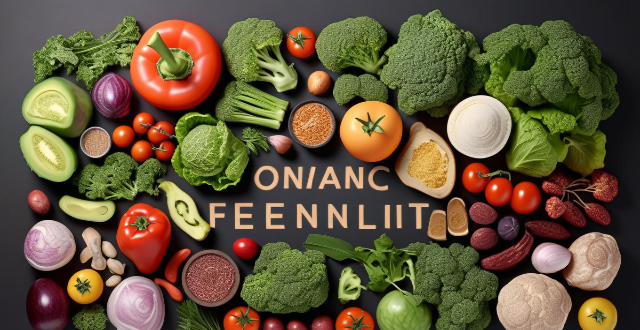Eating organic food may offer some potential benefits for disease prevention, such as reduced exposure to pesticides and chemicals, higher antioxidant levels, and better nutrient content. However, the overall evidence supporting its ability to prevent diseases is limited, and other factors influencing disease risk should also be considered when making dietary choices. It is important to prioritize a balanced and varied diet rich in fruits, vegetables, whole grains, lean proteins, and healthy fats while minimizing intake of processed foods and sugary beverages.

Can Eating Organic Food Prevent Diseases?
Eating organic food has become increasingly popular in recent years, with many people believing that it can prevent diseases. However, the evidence supporting this claim is mixed. In this article, we will explore the potential benefits and limitations of eating organic food for disease prevention.
Benefits of Eating Organic Food
*Reduced Exposure to Pesticides and Chemicals*
- Organic food is grown without synthetic pesticides and fertilizers, which means that consuming organic produce may reduce your exposure to these potentially harmful chemicals.
- Some studies have linked long-term exposure to certain pesticides and chemicals to an increased risk of chronic diseases such as cancer and cardiovascular disease.
*Higher Antioxidant Levels*
- Organic foods often contain higher levels of antioxidants, which are beneficial compounds that help protect against cellular damage and reduce the risk of chronic diseases.
- For example, a study published in the journal "Plos One" found that organically grown tomatoes had significantly higher levels of flavonoids, a type of antioxidant, compared to conventionally grown tomatoes.
*Better Nutrient Content*
- Organic foods may also have better nutrient content than non-organic foods due to differences in soil quality and farming practices.
- A review of 343 studies published in the journal "Environmental Health Perspectives" found that organic crops generally had higher concentrations of certain nutrients, such as vitamin C, iron, magnesium, and phosphorus.
Limitations of Eating Organic Food for Disease Prevention
*Insufficient Evidence*
- While there are some potential benefits associated with eating organic food, the overall evidence supporting its ability to prevent diseases is limited.
- Many studies on the health effects of organic food have been observational or small-scale trials, which makes it difficult to draw definitive conclusions about causality.
*Other Factors Influencing Disease Risk*
- It is important to note that many other factors influence the risk of developing chronic diseases, such as genetics, lifestyle habits (e.g., exercise, smoking), and environmental exposures.
- Simply choosing organic food over non-organic options may not be enough to significantly reduce your risk of developing a particular disease.
*Cost Considerations*
- Organic food tends to be more expensive than non-organic options, which can make it difficult for some people to incorporate into their diets regularly.
- Additionally, some experts argue that focusing solely on organic food may divert attention from other important dietary considerations, such as overall fruit and vegetable intake or reducing intake of processed foods.
Conclusion
While eating organic food may offer some potential benefits for disease prevention, such as reduced exposure to pesticides and chemicals, higher antioxidant levels, and better nutrient content, the overall evidence supporting its ability to prevent diseases is limited. Other factors influencing disease risk should also be considered when making dietary choices. It is important to prioritize a balanced and varied diet rich in fruits, vegetables, whole grains, lean proteins, and healthy fats while minimizing intake of processed foods and sugary beverages.